How to Make a Fascist
Moisés Kaufman probes our need to protect the facts from forces bent on burying history in 'Here There Are Blueberries.'

In 2007, a previously unknown album of WWII-era photographs landed in the hands of historians at the U.S. Holocaust Museum.
The album included 116 photos, mounted over thirty-two carefully notated pages, of Nazis at leisure in and around a vacation chalet at Auschwitz concentration camp. Mere miles from where inmates were held, tortured, and gassed, Nazis were sunning on a porch among the pines, enjoying fresh-picked blueberries.
In the arresting new play Here There Are Blueberries, by Moisés Kaufman and Amanda Gronich, the photo album, which researchers determined belonged to SS Officer Karl Hoecker, forms the crux of an investigation into what roles the seemingly “good,” normal-looking people in the photos might also have played in the atrocities that took place at the camp.
That investigation, in turn, reflects how fragile truth can be, how history can be preserved, or disposed of, revealed, or permanently obscured, depending on who’s left holding the evidence.
“I think that the reason why I wanted to write the play is because I saw those people eating blueberries,” says Kaufman, noting a photo, projected onstage during the play, of a smiling Hoecker gleefully enjoying downtime alongside the camp’s corps of young, female secretaries and switchboard operators. “They were eating blueberries in a vacation resort in Auschwitz.”
Artistic director of the Tectonic Theater Project, Kaufman, who conceived and directs Here There Are Blueberries, approached this story with the same investigative rigor the company applied to its landmark play The Laramie Project, which recounted the anti-gay murder of Matthew Shepard. “I consider myself an artist with a great passion for history, and a great passion for creating plays that deal with real-life events,” says Kaufman.
Paraphrasing a patron he overheard after opening night of this play, Kaufman notes, “History is not something that’s given to us. It has to be found.” Found, preserved, and taught, lest all its lessons be forgotten.
METRO WEEKLY: It’s easy to see the present need for a story like Here There Are Blueberries. But, specifically, what was it about this story that made you want to address it right now, and when did you get started working on it?
MOISÉS KAUFMAN: Well, I feel like this is my most American play. And I am the person who co-wrote The Laramie Project, so you can imagine what that means, right? I feel this is more American than The Laramie Project, because I feel we’re at a moment in our history where the threat of fascism is not an intellectual conceit, but it’s a very pragmatic conceit.
Since The Laramie Project opened, for the last 20 years, many times when there are productions of it, you will have a school board forbidding the students to do The Laramie Project. It doesn’t happen that often, but it happens. Every year we get two or three companies around the country saying, ‘Oh, the board of directors doesn’t want us to do this thing,’ or ‘The town council doesn’t want to do the production.’ Of the hundreds of productions that there are around the country, it does happen somewhat.
This is the first year in the history of The Laramie Project that a school board in Kansas banned the reading of the play in a classroom. Not the performance of the play — the reading of the play. So we are in a time in America where we’re banning books from schools. You know who did that, right? The people in my play [Nazis]. I don’t want to compare the Holocaust to anything, because no tragedy of that magnitude should be compared to any other tragedy, but I think that there’s a way in which we can look at the political ideologies that gave birth to that, and look at the political ideologies that are permeating American culture right now and make a comparison between those two things.
The photos were discovered in 2007. I heard about them. I wanted to do a play about it. I’ve been working in earnest on the play for the last, I don’t know, five years. Tectonic Theater Project, we always have three or four plays in development. So I wasn’t working exclusively on Blueberries for five years. But I’ve been developing it for five years.
MW: Before seeing the play, based on the description, I had an assumption that it was going to be about how Nazis inculcated hate in these innocent young minds. But an insight of the play is that you really don’t have to make people aggressively hateful — people will go along whether they believe in these policies or not.
KAUFMAN: The interesting thing that the play tries to address is that we think that it takes a great deal to make somebody into a fascist, and the truth is that it doesn’t take a great deal. It just takes a bunch of misinformation and a little bit of patriotic fervor. And we have that in our country in spades, right? There are now three — one major television station and two minor television stations — that are entirely devoted to the promulgation of fallacies and political lies. Not to mention that radio in our country historically has been very, very, very right-wing. That combination of misinformation and political fervor is deadly.
MW: Another insight of the play is that the basic tasks along the chain of operations in the Nazi camp were delegated so that no one person felt personally responsible for the ultimate outcome of what happened to an inmate or a group of inmates. The point of view being that everybody was just doing their job, whatever their little job was. It points to what, as you say, and we can see today, that it’s easy for people to say ‘We’re just following orders.’ What are the implications that the play is showing us of those people who are just following orders?
KAUFMAN: I think that one of the big questions that the play asks is what is the difference between being culpable, being complicit, and being an onlooker? Because we all fall in that category, right? We’re all either onlookers, we are complicit or we’re culpable. And to me, what’s interesting, one of the things that we’re trying to point to in the play, is that if you think about it, the people who did this, some of them were complicit, some of them were culpable, but a lot of them were onlookers.
There were 70 million people living in Germany at the time. The entire Nazi infrastructure and government and the army and the SS, that was around a million people. So it took a million people to create the Holocaust, but it took 69 million people to look the other way. And the truth is that those people were not looking the other way. Many of those people believed that this was a correct way to proceed.
They may not have participated, but they didn’t oppose it. So I guess that one of the things the play is trying to say is that in order to create an ethical society, we all have to be aware that we’re one of those three things, and that as such, we have responsibilities.
As a gay Jewish man, I am so keenly aware right now of how much change is happening in our culture against minorities, both as a Jewish person and as a gay person. I mean, really, the conversation now is whether or not drag queens can have an effect on children? That’s our concern? Not the crazy weaponization of the country that is the leading cause of death for children? You want to protect children, ban AR-15s.
But there is such a turn towards the right and the desire to not teach people things. You know, in Florida, don’t say gay? That means that The Laramie Project cannot be performed in the entire state of Florida, in any high school, or in any school. That means that Gross Indecency cannot be performed. Of course, I’m only talking about my plays. But the thought that somebody would tell me that in an entire state my plays would not be able to be performed? It’s such a departure from everything we think of as American democracy.

MW: Something pointed out in Blueberries, mostly through the storyline of the Nazi descendant who is willing to come forward, is that so much history is hidden, covered up, obfuscated. Whether it’s Florida, or the Nazis. Do you think people still don’t appreciate how much the history they learn is determined not just by facts, but by the facts that people want to hide?
KAUFMAN: There was one person who left the theater [opening night], and I overheard them saying, “That’s the thing about history. History is not available for us. We have to find it.” And then the response from the other person was, “History is a story told by people in power. About other people in power. Mostly in the vocabulary of people in power.”
And I think that one of the things that Blueberries poses is the question of, “How do we make sure that our history is correctly told, and how do we take control of our own discourse so that people cannot subvert it?” Because the idea that drag queens are dangerous to children is a perfect example of how our history is being subverted as we live it. The people who have molested children were priests, not drag queens. I mean, there is a way in which they also have their own kind of drag. But, you know…
MW: Later this year it will have been exactly 25 years since Matthew Shepard’s murder. In some ways, we can see 25 years of progress. I’m writing this from the home I share with my husband. But it also feels like we’ve gone 100 years backwards in a lot of ways, and literally 50 years backwards in terms of female health care, trans health care. It Gets Better came out of Matthew Shepard, and it gets better, but then it takes steps back. What would you like to see happen for things to really get better?
KAUFMAN: I think that there needs to be a reckoning where people who are in the Republican Party stop believing that the only way that they can get to power is by continuing to oppress minorities. That is their one weapon to frighten the masses into believing that we’re dangerous, whether it’s we, the LGBTQ community, or whether it’s we the immigrants, or whether it’s we the different ethnicities or races.
And I think until one entire party in one system of government stops using fear to manipulate the populace, we’re not going to see any change. With Matthew Shepard, is it true that there’s been progress? Yes. As you said, we have gay marriage. We have a number of things. But violence against our trans community is the highest it’s ever been. There are more hate crimes now against our community than there were at the time that Matthew Shepard was attacked. They are now just more focused on the trans community.
There is much more active hatred toward our LGBTQ population. Like, again, all of these things that are happening — “Don’t Say Gay” in Florida, things like that — they go directly against the core of who we are as a nation and who we are as a community. So I don’t know. I wrote this play because I felt it was my most American play. And I think that anybody who’s in the LGBTQ community will come and see this play and they will relate to what they see. But I also think that everybody who’s really interested in democracy will come and see this play and understand why this play needs to be spoken right now.
Here There Are Blueberries runs through May 28 at The Shakespeare Theatre’s Sidney Harman Hall, 610 F St. NW. Tickets are $35 to $125. Call 202-547-1122, or visit www.shakespearetheatre.org.
Visit the Tectonic Theater Project at www.tectonictheaterproject.org.
Support Metro Weekly’s Journalism
These are challenging times for news organizations. And yet it’s crucial we stay active and provide vital resources and information to both our local readers and the world. So won’t you please take a moment and consider supporting Metro Weekly with a membership? For as little as $5 a month, you can help ensure Metro Weekly magazine and MetroWeekly.com remain free, viable resources as we provide the best, most diverse, culturally-resonant LGBTQ coverage in both the D.C. region and around the world. Memberships come with exclusive perks and discounts, your own personal digital delivery of each week’s magazine (and an archive), access to our Member's Lounge when it launches this fall, and exclusive members-only items like Metro Weekly Membership Mugs and Tote Bags! Check out all our membership levels here and please join us today!






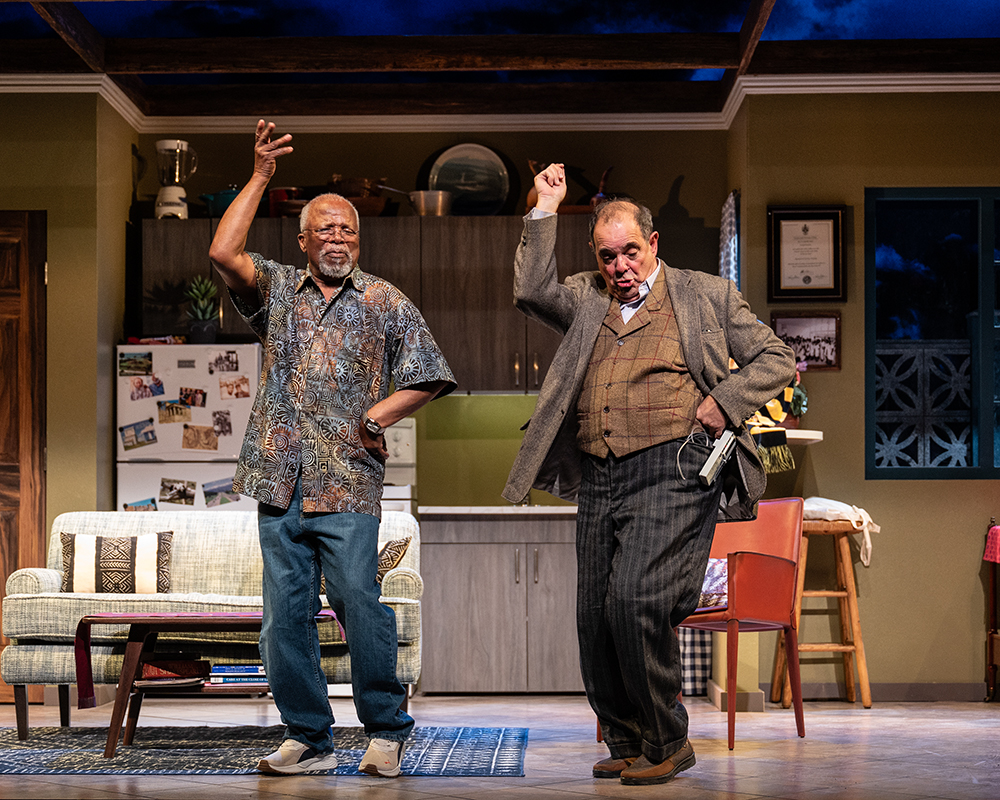
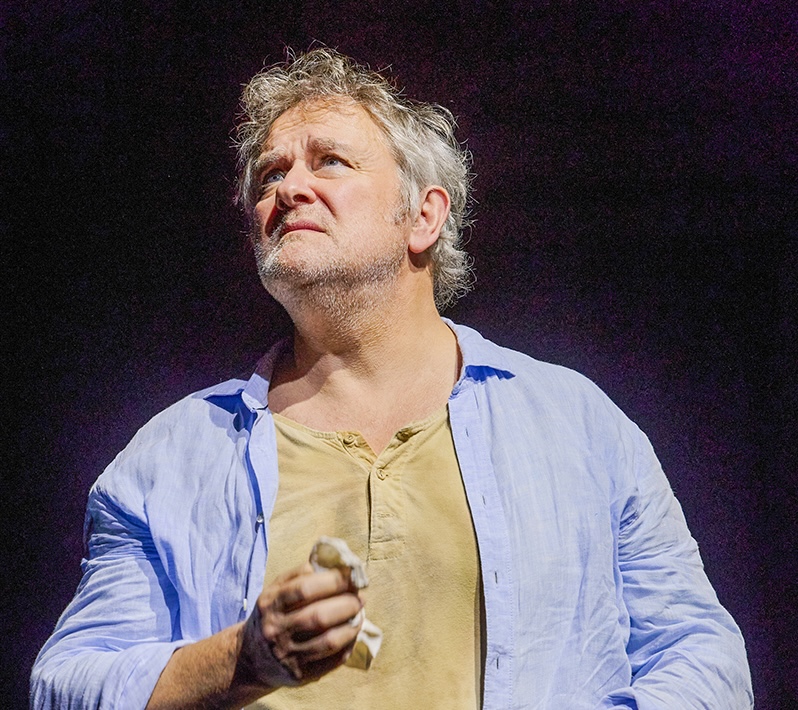















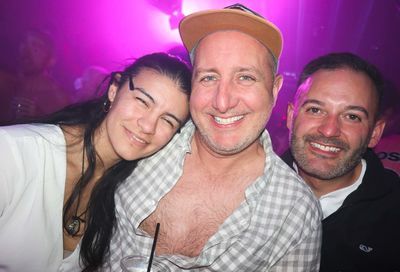
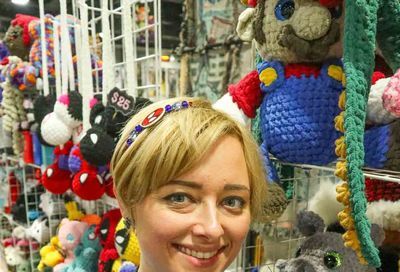
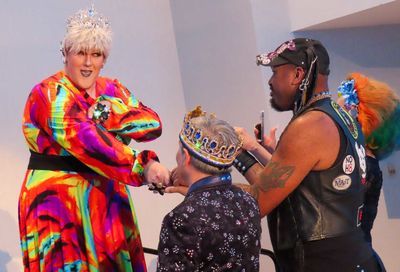
You must be logged in to post a comment.